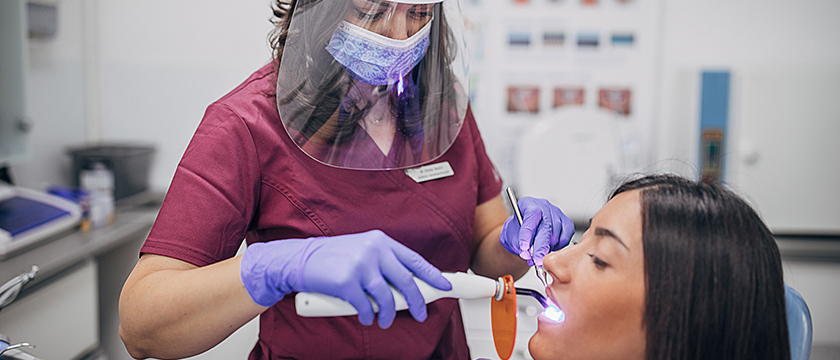Blog
 10 Apr 2023
10 Apr 2023
Everything You Should Know About Dental Cleaning
Dental cleanings are one of the most important oral health procedures you will receive at your dentist’s office. They keep your teeth clean and healthy, your gums free from disease, and your smile looking bright.
 05 Nov 2021
05 Nov 2021
How Can an Emergency Dentist Help You?
A shattered tooth or painful toothache is distressing enough on its own, but it is far worse when it happens outside of regular dental office hours. Luckily, there is a solution that can get you the care you need. Emergency dentists offer expedited treatment that will get you out of pain and on the road to recovery without having to contend with a long wait. Choosing your emergency dentist before you need one can make it even easier to get timely dental treatment in a crisis.
 10 May 2021
10 May 2021
A Complete Guide to Choosing a Family Dentist
Children require regular dental care as much as any other type of healthcare, even when they are very young. The Canadian Dental Association recommends that all children visit a dentist before their first birthday and receive regular dental checkups every six months afterwards.
However, finding a family dentist in Mississauga is not always an easy task. You must choose a dentist that is able to provide reliable, convenient care for both the children and adults in your family. This guide will identify what to look for at a family dentist and offer tips to find the right one for you.
 10 Apr 2021
10 Apr 2021
What to Expect at Our Dental Office During COVID-19
The COVID-19 pandemic has disrupted Canadians’ dental health routines and made it difficult for patients to receive the dental care they need.
Like most dental offices in Mississauga, Trillium Smile Dentistry has continued to offer dental services throughout the pandemic. As we are considered an essential service in Ontario, we are still open and available to provide dental care.
We have modified our usual practices and made additional investments to ensure that our patients feel comfortable when they visit our office during the ongoing pandemic. Here is what you can expect from us at this time.
